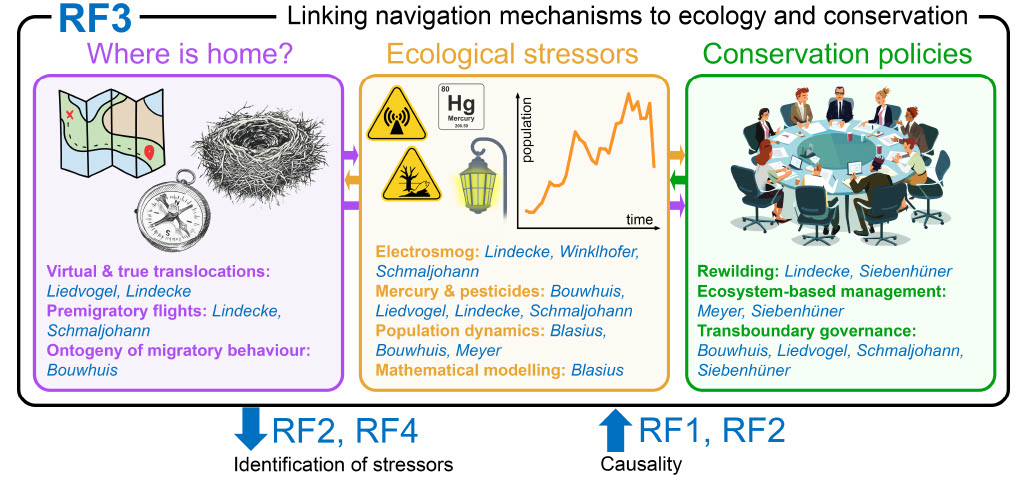Anthropogenic stressors like habitat loss, climate change and sensory pollution lead to rapid declines in biodiversity across the globe. Migratory animals are especially effected, which is particularly concerning, as they move substantial amounts of biomass around the globe. In RF3, we will study how anthropogenic pollution (e.g. electrosmog, artificial light at night, etc.) affects the animals’ senses, navigation mechanisms, and breeding success with laboratory and field experiments and model how stressors affect the navigation and ecology of migratory animals. In addition, we aim to understand how different groups of animals define “home” since only when we understand this, rewilding and translocation attempts of migratory animals can be successful.
With the gained knowledge, we will actively engage as advisors in conservation, restoration and rewilding projects. We will formulate science-based effective and internationally valid conservation governance strategies for an improved conservation management and transboundary, sustainable protection of migratory species. To protect navigating animals from anthropogenic sensory pollution, we will provide solutions to mitigate pollution effects. Thus, with the knowledge of RF3, we can contribute to the restoring of biodiversity and ecosystems.
Involved fields of expertise: Animal behaviour, animal biodiversity, behavioural genomics, conservation biology, ecological economics, ecophysiology, evolutionary biology, evolutionary ecology, mathematical modelling, migration ecology and neuroethology.
Mainly involved PIs and Cooperation partners: Bernd Blasius, Sandra Bouwhuis, Miriam Liedvogel, Oliver Lindecke, Bettina Meyer, Bernd Siebenhüner, Heiko Schmaljohann
Designated speaker of RF3: Miriam Liedvogel

